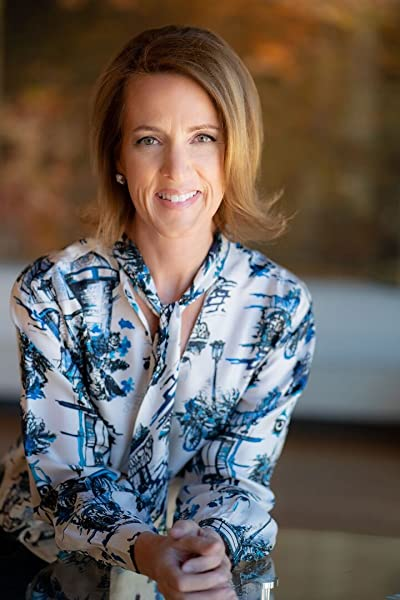ATD Blog
Smart Growth: Q&A With Whitney Johnson
Fri Jan 21 2022


Whitney Johnson, founder and CEO of Disruption Advisors, is an innovation and disruption theorist and award-winning Wall Street stock analyst. She is the author of the bestselling books Build an A-Team and Disrupt Yourself, as well as a frequent contributor to Harvard Business Review and MIT Sloan Management Review. In this Q&A, Johnson offers insights from her latest book Smart Growth: How to Grow Your People to Grow Your Company.
First off, I admire the enormous amount of storytelling you employ to highlight your points. You must have spent months collecting, curating, and sifting through these stories. Tell me about using storytelling as a technique for teaching others.
Getting the right stories in the right place is a lot of work, but it’s well worth it. Because our brains remember visuals and stories, I use both as much as possible. It’s also a lot of fun to find the just-right story to illustrate a concept.
Many of the stories in Smart Growth came directly from our Disrupt Yourself podcast. One of my favorite parts of the podcast is having deep one-on-one conversations—and it’s a bonus when I realize, “Oh, that story is perfect for this part of the book.” That’s what happened with the Ellen Bennett story. We need a story to wrap up the Accelerator chapter. As soon as I finished interviewing her, I realized, “That’s the story.”
What are some stories of success that helped you in your career journey and inspired or created momentum for you?
The first one that comes to mind is a fictional story, Working Girl. I saw that film when I first started working as a secretary on Wall Street. The transformation of Tess, the protagonist, inspired me. I was also influenced by Katharine Graham’s autobiography. She was the former owner of the Washington Post.
Right now, I’m inspired by Leena Nair, former CHRO of Unilever, whom we recently hosted on the Disrupt Yourself podcast. She was just appointed CEO of Chanel.
In the book, it feels like the crux of the content in the chapters are for personal development/growth and then each part has a takeaway for managers. Was this to say something about how you have to grow yourself first before you can grow others? Or what was the reason for the layout of the book in this way?
Yes! That is exactly why.
For growth to happen, there needs to be an active agent. If you want to be that agent–an agent of disruption–you first have to become its subject. Based on our research, it is resoundingly clear that you have to grow yourself to grow your people and your company—in that order.
So that was my starting point in Smart Growth. It starts with you–the fundamental unit of growth in your organization.
I know you are in the midst of growing your own company, “scaling it” as you said in one of your recent podcasts. How has your own book helped you in your growth?
What I love about the s-curve of learning is that it is simple and visual, and therefore useful. When I am starting something new (whether interviewing someone I’ve never interviewed before, having a tough conversation with a loved one, or trying to learn how to take a break from work), if I am feeling uncomfortable and unsure and impatient, I remind myself, “This is how you are supposed to feel. You are at the launch point. Situation normal.” The s-curve allows us to map the emotional arc of growth–to normalize our experience.
I love in your book how you have one of your focuses in the Accelerator section as “say no to yes.” It really highlighted, as I listened to your Rob Cross interview, that servant leaders often over-extend themselves. How do you stay in this sweet spot without overextending yourself?
When I was on deadline for Smart Growth, during the final week, I loved being able to say “no” to everything but the book. It was a luxury I afforded myself. But it’s one that I could enjoy more often if I were clearer on my priorities. And if I were better at saying “no.” And if I were willing to not please people.
So, here are the lessons I am learning:
1. Start each day or week, zooming out–why are you doing what you are doing?
2. Set priorities accordingly.
3. Flex the no muscle. Remember that you can’t really say “yes” until you learn to say “no.”
4. When people say “no” to you, express appreciation that they were direct. Honor that it was hard for them.
5. Observe how people respond when you respectfully decline. You will be surprised in positive ways.
6. Work every day to ensure that the most important opinion in your life is yours. That way, if people are disappointed, or even unkind, when you say “no,” there will be little to no sting.
That’s my servant-leader sermon that I just now wrote for me, and I certainly hope it helps you!
Where are you on your s-curve currently?
You can be on lots of different curves at the same time. You might be in the sweet spot at work, at the launch point in a relationship, and in mastery with a hobby. Like you, I’m on a number of s-curves. With coaching, speaking, and podcasting, I’m in the sweet spot. With building our company Disruption Advisors, I’m at the launch point. For the book Smart Growth which comes out in January, I am definitely at the launch point.
For those starting off their careers in learning and talent development, what is the one bit of advice you can give them on developing their “smart growth”?
When you start something new, whether a new role or job, you are at the launch point of your s-curve of learning. S-curve math tells you that it can feel like a slog. It’s not that growth isn’t happening, but it’s not yet apparent, so it feels slow. If it is thrilling, exhilarating, terrifying, and uncomfortable, that is to be expected. It’s also temporary. As you put in the effort, you will navigate away from the launch point, accelerating into the sweet spot of confidence and competence, where growth is fast and feels exhilarating.
